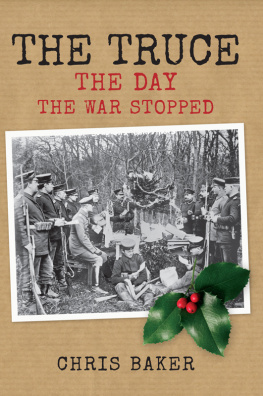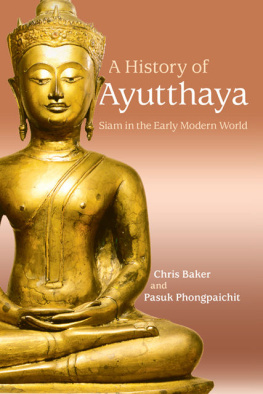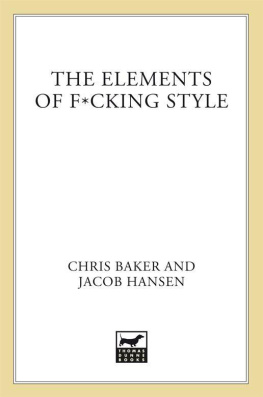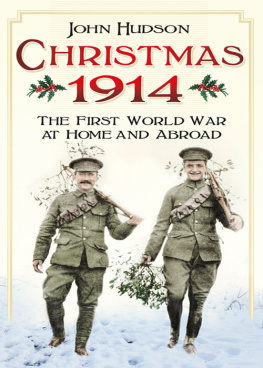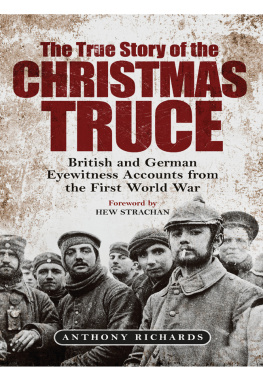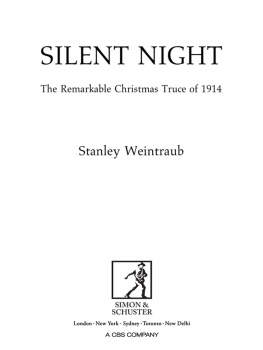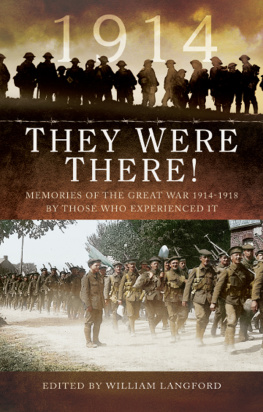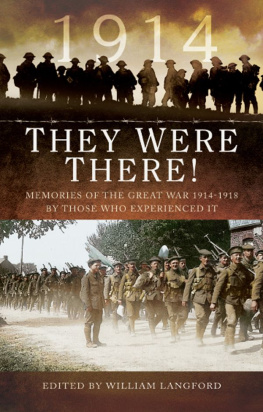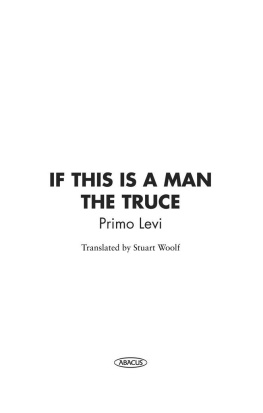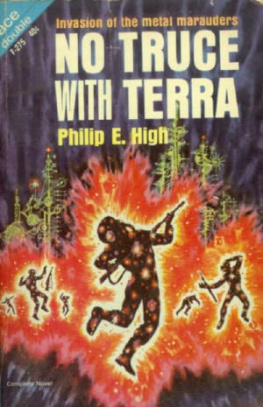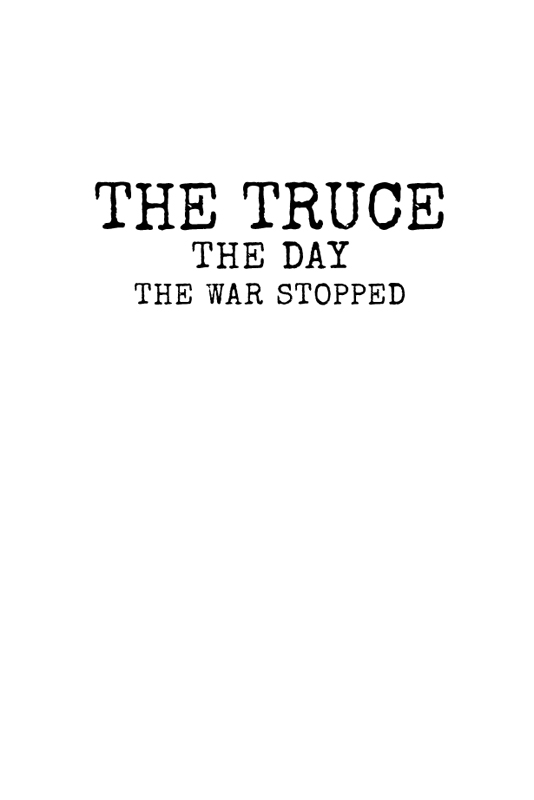First published 2014
Amberley Publishing
The Hill, Stroud
Gloucestershire, GL5 4EP
www.amberley-books.com
Copyright Christopher Frank Baker, 2014
The right of Christopher Frank Baker to be identified as the Author of this work has been asserted in accordance with the Copyrights, Designs and Patents Act 1988.
All rights reserved. No part of this book may be reprinted or reproduced or utilised in any form or by any electronic, mechanical or other means, now known or hereafter invented, including photocopying and recording, or in any information storage or retrieval system, without the permission in writing from the Publishers.
British Library Cataloguing in Publication Data.
A catalogue record for this book is available from the British Library.
ISBN 9781445634906 (PRINT)
ISBN 9781445635118 (eBOOK)
Typesetting and Origination by Amberley Publishing.
Printed in the UK.
Contents
Acknowledgements
Research for a book such as this relies heavily upon the assistance of the primary archives of contemporary material. I particularly thank the staff of the National Archives, Imperial War Museum, the British Library, the Special Collections at the Brotherton Library at the University of Leeds, the BBC Written Archives and the documentation centre at In Flanders Fields museum in Ypres.
Dr Jack Sheldon, ground-breaking author of so many titles on the German armies on the Western Front, was of great help in identifying units and pointing me in the direction of German sources. I thank Malcolm Brown and Shirley Seaton, whose masterly work Christmas Truce provides such a strong factual basis for anyones education in that subject. Andrew Thornton, Jeremy Banning, Alan Hewer and Joseph Bogaert have all assisted too, with copies of rare material. Members and pals at the internet Great War Forum directly, and in some cases unwittingly, also provided valuable information and suggestions.
I also thank the owners of copyright material who have so willingly given their approval for use of their works. All efforts have been made to identify copyright holders where this was not immediately evident. I urge anyone who believes that a copyright work has been used without appropriate permission to contact me via the publisher.
Finally, thanks to my long-suffering wife Geraldine, who gives up so much to allow me to concentrate on my First World War work and, on this occasion, to my son Lawrence, who helped with war diaries and officers service records at the National Archives.
PROLOGUE
Christmas Greetings
It was not unreasonable to think the British General Post Office would forecast that the usual Christmas rush of mail would be somewhat reduced in 1914, in comparison with previous years. After all, normal trade was disrupted, people were not feeling quite so jolly and many were being rather more careful with their money. In peacetime, an additional 11,000 temporary workers had been engaged to handle the extra parcels, cards and packages at Christmas, but it was decided that 10,000 would be sufficient for this year. Even this was believed to be on the high side of what would be needed, but with so many postal workers having enlisted since August 1914, it would fill the gaps to cope with the expected volume.
The GPO was already handling the masses of post being sent to soldiers overseas. Comforts of all kinds had been going at an average rate of 20,000 parcels every day since the British Expeditionary Force had first moved to France in August 1914. The sorting offices and mail trains had grown accustomed to dealing with it. But the GPO had not counted on the extraordinary effect that Christmas would have on peoples wish to send something to their men in France. Cards, cakes and puddings, smokes, woollens, socks and all manner of gifts, both useful and frivolous, were being bought, or lovingly made. In the six days up to the last posting date of 12 December, 250,000 parcels were sent. The GPO was stretched to the very limit, and things were not helped by the fact that many people did not how to address a package so that it reached the right soldier.
The Royal Engineers Postal Section, which was responsible for receiving and distributing the post arriving in France, had no recent previous experience upon which to draw when it came to estimating how many men, vehicles and facilities it would need in order to handle the expected Christmas post. It was arranged that the 900 men of the Section should be temporarily increased to 1,500, but how to transport the mountains of mail proved more difficult. A special postal and gifts railway train was organised, which would run from the main postal base at Le Havre to the station at Boulogne, where the trucks would be separated and coupled to trains going to each railhead. The goods would then be taken on by lorry to the units at the front. On finding no spare lorries available in France, the director of postal services had to make a special appeal to the War Office. The depots were searched and forty-four additional vehicles were sent for postal work, plus two for each of the eight divisional supply columns, along with another six for work on the lines of communication in the rear.
Somehow they just managed to handle the huge numbers of letters and parcels. The men in the front lines received their cards, puddings and cigarettes by the sandbag-full. As an example, the 2nd Northamptonshire Regiment recorded in their daily war diary that, while in billets in La Gorgue on 21 December 1914, the number of presents received became almost embarrassing; mufflers, belts, scarves abounded while the number of cigarettes amounted, at one time, to a hundred and twenty a man. Eighty tons of plum puddings were delivered to the railheads between 24 and 26 December.
The British public would have been generous in sending their sons, fathers, brothers and cousins in uniform something for Christmas, without being told or persuaded to do so. They may have also been inspired by an idea that came direct from Buckingham Palace. The Times of 16 October 1914 published an appeal by Princess Mary for donations to raise 100,000, to send a Christmas present to every sailor afloat and every soldier at the front. Could there be anything more likely to hearten them in their struggle than a present received straight from home on Christmas Day? Promised donations, amounting to almost 4,000, from benefactors including the Rothermeres, the Rothschilds, the Duke of Devonshire and others from the rich list of the day, showed that the Princess had already drummed up some support. More donations rolled in over the next months and, at Christmas, the troops each received a small brass tin containing tobacco or sweets for the non-smokers among them. The Princess Mary box is one of the most common personal artefacts in family and museum collections to this day.
The men at the front wrote home whenever possible. Field postcards that were uncensored, but which only gave brief details such as I am well, along with locally bought picture postcards and souvenir embroidered cards, all came from France in their thousands. Many a soldier had his photograph taken and sent home when he had his turn out of the front line. Letters home often went through censorship so sensitive military details were not mentioned, but they were often sent, even if only to ask after the familys health and to assure them that the soldier himself was in the pink. As Christmas approached, mens thoughts turned increasingly to home and family.

